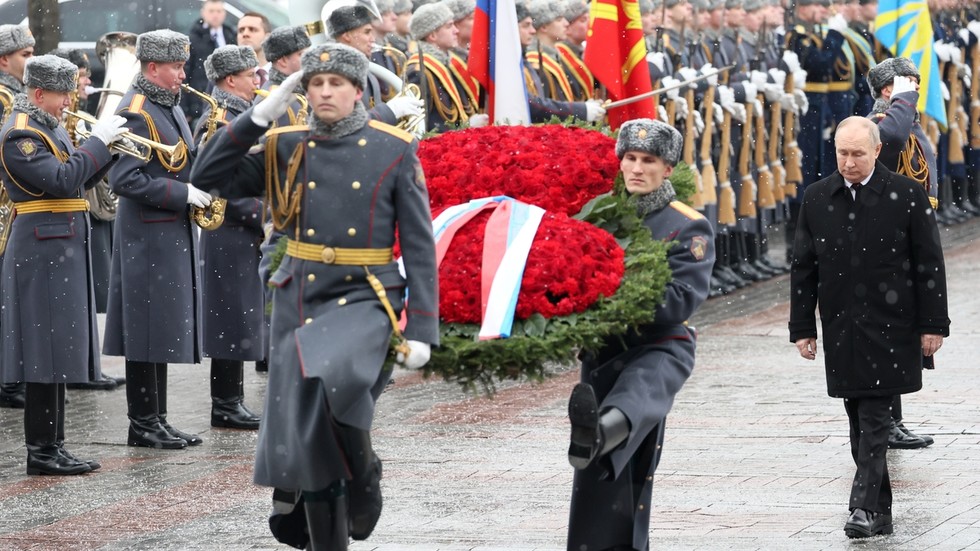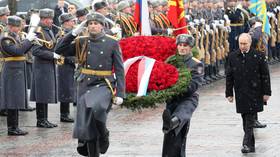
The president laid flowers at the Tomb of the Unknown Soldier in Moscow, a tradition honoring ‘Defender of the Fatherland Day’

Russian President Vladimir Putin lays flowers at the Tomb of the Unknown Soldier in Moscow, Russia, on February 23, 2024. © Sputnik / Sergey Savostyanov
Russian President Vladimir Putin attended a wreath-laying ceremony at the Tomb of the Unknown Soldier in Moscow on Friday to celebrate ‘Defender of the Fatherland Day’ – a major national holiday dedicated to all who have served or are serving in Russia’s Armed Forces.
The tribute was made in the Alexander Gardens near the Kremlin Wall in the center of the Russian capital and was also attended by Defense Minister Sergey Shoigu, as well as some Russian veterans and military school students.
A video of the event was published on Telegram by journalist Pavel Zarubin. Footage shows soldiers of the Presidential Regiment laying a large wreath of red roses adorned with a ribbon in the colors of the Russian national flag at the war memorial, with the Russian leader following closely behind.
The wreath-laying ceremony is an annual tradition at the Tomb of the Unknown Soldier, a memorial which was unveiled to the public in 1967 and is primarily dedicated to Soviet soldiers killed during World War II.
2024’s ceremony ended with a silent drill-team parade. Earlier in the day, the president congratulated both military and civilian personnel of the Russian Armed Forces as well as veterans, saying that ‘Defender of the Fatherland Day’ remains one of the most honored holidays in Russia.
READ MORE:
As Russia celebrates Veteran’s Day, here’s how the country fought in different periods of its thousand year history
Established in 1919, the national holiday was originally aimed at glorifying the Red Army. It later evolved to honor all those who have served or are still serving in the military in defense of Russia. In that sense, it is roughly equivalent to America’s Veteran’s Day or to Britain’s Armed Forces Day.
After the collapse of the Soviet Union, it also gained a wider meaning and was sometimes seen as ‘Men’s Day’ and as extending congratulations to men of all vocations. The holiday is also celebrated in some other post-Soviet states, including Belarus, Kyrgyzstan and Tajikistan.